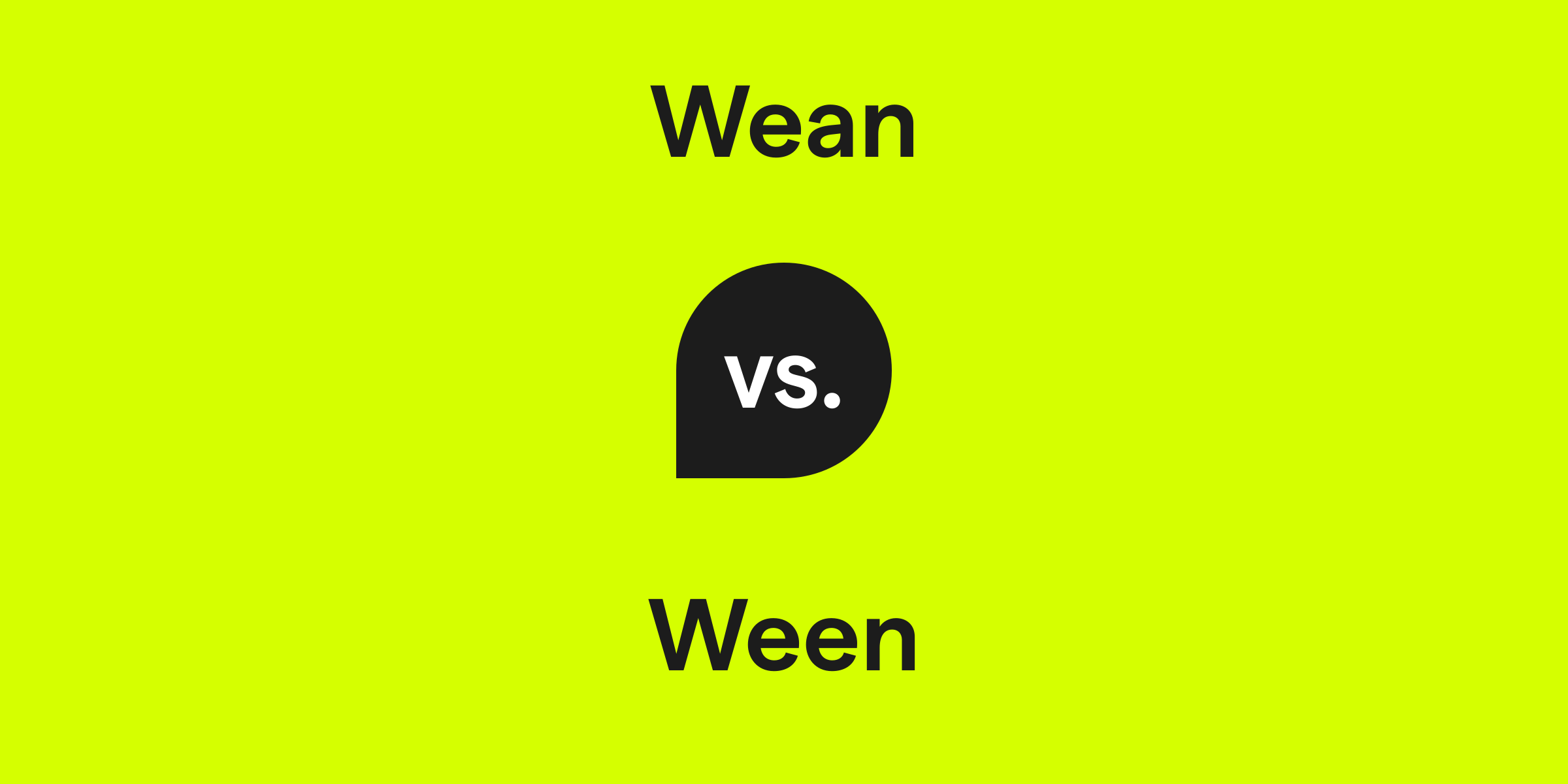Wean vs. Ween: What's the Difference?
Wean and ween may sound similar, but they have distinct meanings and uses. To wean is to accustom a child or young animal to food other than its mother's milk, marking the gradual reduction of breastfeeding. It can also explain the process of someone gradually reducing dependence on something. Ween, on the other hand, is an archaic term that is seldom used; when it is, it typically means to think or suppose.

How do you use the word wean in a sentence?
Use the word wean in sentences to describe the process of reducing dependency on a substance or moving away from a habitual action. It's often related to the transition from breastfeeding to bottle-feeding or solid food in the context of infants. Wean can also reference less literal dependencies, such as weaning off medications or breaking free from a habit.
Examples of wean in a sentence
- The mother decided it was time to wean her baby and introduce solid foods.
- He was weaned off the medication under close supervision by his doctor.
- The zookeepers weaned the lion cubs carefully to ensure their health.
How do you use the word ween in a sentence?
Ween is rarely used in modern English and carries an archaic tone when it is. It means to expect, suppose, or believe something and was more commonly found in literature of the past. Today, you might encounter it in poetry, historical texts, or discussions based on older writings.
Examples of ween in a sentence
- In olden texts, it was not uncommon to find phrases such as 'I ween it shall be so'.
- The characters in the novel often spoke in archaic terms, saying things like 'I ween thou art mistaken'.
- Though now rare, the word ween once appeared frequently in romantic poetry.
Wean and ween definition, parts of speech, and pronunciation
Wean definition:
Wean (verb) - To accustom a baby or other young mammal to food other than its mother's milk; to detach from a dependency or habit.
Wean parts of speech:
Wean pronunciation:
Wean - /wiːn/
Ween definition:
Ween (verb, archaic) - To suppose, believe, or expect.
Ween parts of speech:
Ween pronunciation:
Ween - /wiːn/
Wean (verb) - To accustom a baby or other young mammal to food other than its mother's milk; to detach from a dependency or habit.
Wean parts of speech:
- As a transitive verb: The parents wean the child off pacifiers.
Wean pronunciation:
Wean - /wiːn/
Ween definition:
Ween (verb, archaic) - To suppose, believe, or expect.
Ween parts of speech:
- As a verb: It was widely weened that the treasure lay hidden beneath the old manor.
Ween pronunciation:
Ween - /wiːn/
Wean vs. ween in a nutshell
The primary difference between wean and ween lies in their usage and meaning. Wean is a commonly used verb associated with the gradual cessation of breastfeeding or dependency, whereas ween is an archaic verb that means to suppose or believe. Understanding the context in which these words are used is essential, as wean has practical implications in everyday life, while ween is generally found only in historical or literary texts.
Get AI Writing Assistance Wherever You Type
Make sure your vocabulary is on point and every punctuation mark is in the right place, no matter where you’re working. Grammarly works across more than 1 million websites and apps so you can improve your writing without copying, pasting, or breaking focus.

More Commonly Confused Words
Interest piqued? Pore (not pour) over other commonly confused words to help your writing reach peak (not peek) performance.